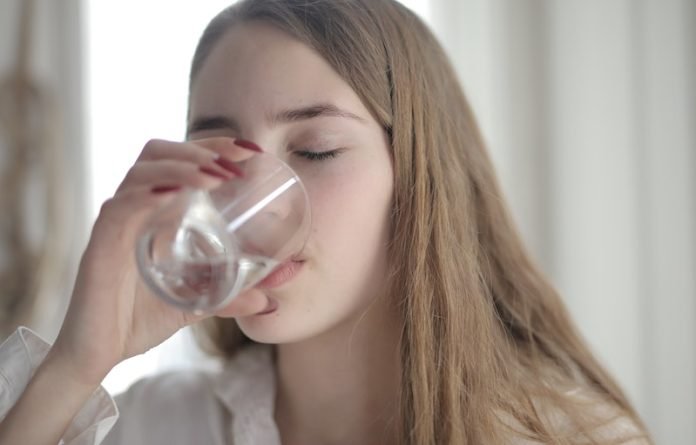
The idea of drinking eight eight-ounce cups of water a day has been repeated for so many years, many of us use it as a goal for our water intake.
This so-called standard isn’t supported by science. Most of us will be fine if we simply drink when we’re thirsty.
What we need
Fluid needs depend on a wide variety of factors. A recent study measured water loss and intake in 5,604 people ages eight days to 96 years from 23 countries.
They found age, body size and composition, activity level, climate, geographic location (latitude and altitude), pregnancy, and socioeconomic status were all significantly associated with how much water people lost and took in.
Because needs are so individual, there is no recommended intake level that applies to everyone. Fortunately, the body usually does a good job of making sure we get it right.
“The body is equipped with hormones and receptors that tightly regulate water levels,” says Daniel Weiner, MD, a nephrologist at Tufts Medical Center and medical director of Dialysis Clinic, Inc., Boston.
Thirst prevents most people from drinking too little. “The very young and the very old may be the exception,” says Klemens Meyer, a nephrologist and director of Dialysis Services, emeritus, at Tufts Medical Center.
“Infants and young children have small body mass, which makes them more sensitive to even small amounts of fluid loss, and they don’t have the ability to clearly express their thirst.
For older adults, the ability to sense thirst is lessened, as is their body’s fluid volume and the ability to get rid of excess water effectively.”
These factors can increase older adults’ risk for dehydration as well as over-hydration.
The body doesn’t store water for later use: it uses what it needs and excretes the excess through urine, so it’s difficult to drink too much.
“Most people can drink far more water than they require without any adverse health consequences,” Weiner says, “aside from needing to go to the bathroom more frequently.”
Weiner points out that some people, most often older adults and people who use certain medications (particularly thiazide diuretics for blood pressure) are at higher risk of developing a condition called hyponatremia from water overload.
“This is unusual in healthy people, unless they’re drinking many liters of water,” he says.
Water, water, everywhere
The idea that we should all drink eight (eight-ounce) cups of water a day originated with a 1945 statement from the U.S. Food and Nutrition Board of the National Research Council which encouraged adult water intake of 64 ounces (oz) a day.
This recommendation included water from foods, which contribute approximately 20% of our water intake, so we don’t actually need to drink all 64 oz.
Fruits and vegetables (some of which, like watermelon and cucumbers, are more than 90% water) are some of the biggest contributors, but soups, stews, and foods that absorb water when cooked (like beans, lentils, grains, and pasta) contribute as well.
What to do: Listen to your thirst
“Thirst has served people well for thousands of years; there is no reason to change now,” Weiner says.
You’ll need more water than usual if you’re very active and sweating, at high altitudes, and in hot or humid weather (we sweat more in humid than dry weather because our sweat cannot evaporate to cool us off).
Since older adults and young children may not be able to rely on thirst, they should pay special attention to their fluid intake in these conditions.
Women who pregnant or breast-feeding also need additional fluid intake. If you are sweating a lot for an hour or more (or losing fluids through vomiting or diarrhea), you may need electrolytes along with water.
Electrolytic sports drinks typically have added sugars and colorings. Choices like milk, soy milk, coconut water, and chicken broth naturally contain electrolytes to aid in rehydration.
Urine color is one possible way to gauge hydration in children and young adults, but not necessarily in older adults. Light-colored urine indicates hydration, very dark urine indicates dehydration.
Whenever you’re thirsty, avoid drinks with added sugars (including those sweet coffee drinks) and hydrate with healthy choices, like any kind of water, unsweetened tea and coffee, and juicy fruits and veggies.
If you care about nutrition, please read studies about how Mediterranean diet could protect your brain health, and the best time to take vitamins to prevent heart disease.
For more information about nutrition, please see recent studies that olive oil may help you live longer, and vitamin D could help lower the risk of autoimmune diseases.



